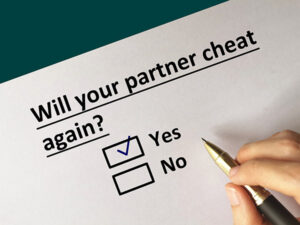How Does a Guilty Person Act When Accused of Cheating? Unveiling the Truth

Have you ever been in a situation where you suspect your partner of cheating? It’s a gut-wrenching feeling that can leave you questioning everything. But how can you tell if your suspicions are justified? Let’s dive into the world of guilty behavior and explore the signs that might reveal a cheater’s true colors.
The Telltale Signs of Guilt
When accused of cheating, a guilty person often exhibits specific behaviors that can be dead giveaways. These signs aren’t foolproof, but they can offer valuable insights into a person’s state of mind.
1. Defensive Reactions
A guilty person might become instantly defensive when confronted about cheating. They’ll often respond with anger or indignation, attempting to turn the tables on you. “How dare you accuse me?” or “You’re crazy for thinking that!” are common responses. This defensive stance is often a smokescreen to deflect attention from their own actions.
2. Sudden Changes in Behavior
Notice any abrupt shifts in your partner’s routine or habits? A guilty person might start paying more attention to their appearance, working late more often, or becoming overly protective of their phone. These changes could be red flags worth investigating.
3. Gaslighting and Manipulation
A cheater might try to make you doubt your own judgment. They’ll twist facts, deny obvious truths, and even accuse you of being paranoid. This manipulation technique, known as gaslighting, is a common tool in a guilty person’s arsenal.
4. Overcompensation
Surprisingly, some guilty parties might become overly affectionate or attentive. They might shower you with gifts or plan unexpected romantic gestures. While this behavior might seem positive, it could be a sign of guilt-driven overcompensation.
5. Mood Swings
A guilty person might experience rapid mood changes. One moment they’re loving and attentive, the next they’re distant and irritable. These fluctuations often stem from internal conflict and stress.
6. Avoidance and Withdrawal
Some guilty individuals might start avoiding intimate conversations or physical contact. They might spend more time away from home or become emotionally distant. This withdrawal can be a sign of guilt and emotional detachment.
The Power of Technology
Technology plays a significant role in uncovering the truth. The Spynger app, for instance, offers a way to monitor phone activities, providing insights into calls, messages, and location data. While such tools can be useful, it’s crucial to use them responsibly and ethically, always respecting privacy laws and obtaining proper consent.
7. Nervous Tics and Fidgeting
A guilty person might display increased nervous behaviors. Fidgeting, avoiding eye contact, or excessive sweating can all be signs of discomfort and potentially, guilt.
8. Changes in Voice Pitch
Research has shown that stress and guilt can affect vocal patterns. A study published in the Journal of Nonverbal Behavior found that individuals under stress often experience changes in voice pitch and speaking rate.
9. Increased Secrecy
A guilty person might double down on their secretive behavior. They might start deleting messages more frequently, changing passwords, or being more cautious about their digital footprint.
10. Blame Shifting
Instead of addressing the accusation, a guilty party might try to shift blame onto you. They might bring up past mistakes or create new issues to distract from the current situation.
The Road to Truth
While these signs can be indicative of guilt, it’s important to approach the situation with caution. Open communication is key. Try to create a safe space for honest dialogue, free from judgment or accusations.
Moving Forward
Dealing with potential infidelity is never easy. Whether your suspicions are confirmed or not, the journey ahead requires strength and clarity.
If your partner is indeed guilty, you’ll need to decide on your next steps. This might involve seeking couples counseling, taking time apart, or even ending the relationship. Remember, healing is possible, but it requires commitment from both parties.
Conclusion
In conclusion, understanding how a guilty person acts when accused of cheating can provide valuable insights. However, it’s essential to approach the situation with empathy and wisdom. Trust your instincts, but also be open to honest communication. Remember, every relationship is unique, and there’s no one-size-fits-all solution to these complex emotional situations.
By staying vigilant, communicating openly, and trusting your instincts, you can navigate these challenging waters and work towards a healthier, more trusting relationship – whether with your current partner or in future connections.






